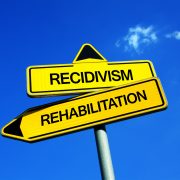Economists seem to believe that life should be conducted in a cold and calculating manner. They talk about rational decisions and optimized systems, based on the economic calculation of costs and benefits. Worse, they believe that only they, as experts, are able to make the most rational decisions and to design the optimized systems, and they contrive to impose them on the rest of us through the coercive institutions of government.
What’s Right Way To Look At Entrepreneurial Ethics?
One of the excuses economists and bureaucrats use for this coercive imposition is “social justice” or “redistributive justice”. They look at the outcomes of economic activity and they judge it to be just or unjust based on their own subjective opinions. They assume that resources are fixed, and focus on their distribution. They exhibit high time preference – placing a higher value on their perception of the short term justice of redistribution, despite the amply proven negative societal effects of intervention and planning, including the loss of individual freedom.
They make no allowance for the fact that the individuals involved in the entrepreneurial process behaved in a completely ethical fashion. How can the results of ethical behavior be deemed to be unjust?
If Economists Thought Like Humans They’d See Things Differently.
Economists need to be much more human. They can recognize humans as creative actors in a dynamic system, who act within well-evolved ethical principles that provide them with guidance for their behavior and reflect their respect for human freedom.
The most important attribute of the entrepreneur is empathy for others – an understanding of and appreciation for their wants and needs and dissatisfactions. Empathy helps the entrepreneur in the creative process of designing a new and better offering to help meet those needs and wants and end the dissatisfaction.
Earning A Reputation By Acting Ethically.
With a potential new offering in hand, the entrepreneur enters a period of sacrifice to bring the offering to market. It takes money and time to assemble resources, perfect the new recipe or formulation or code or operating system, and make it ready for customer consideration. Great care must be taken over the delivery of the product or service, and in the customer service that supports it. The entrepreneur wishes to earn a reputation as trustworthy and reliable, someone who keeps promises. As Adam Smith put it in the 1759 language of Theory Of Moral Sentiments, the entrepreneur wishes to be loved, and to earn that status by being lovely, i.e. worthy of the sentiment.
The entrepreneur can not always coldly calculate the future costs and benefits of his or her actions on behalf of the consumer, because conditions and tastes are always changing. But the entrepreneur can always act within the guidance of ethical principles, demonstrating empathy and earning love, and can be confident that this pattern of behavior will be well supported in the marketplace.
Ethical Behavior Coordinates The Entrepreneurial Process.
With millions of entrepreneurs serving hundreds of millions of customers in this way, the dynamic social process is coordinated by ethical principles. Individual behavior is judged as just or unjust based on the general rules regulating property rights and the earning of the results of their own entrepreneurial activity, and not on the basis of distributive outcomes.
The Concept Of Redistributive Justice Makes No Ethical Sense.
So called social justice or redistributive justice aims to judge as just or unjust the results of the entrepreneurial process, regardless of whether or not the behavior of participating individuals has been in line with general ethical and moral rules. It makes no sense.
A) It violates the traditional principles of property rights formed by common law that have made civilization possible. It is within these property rights that entrepreneurs design customer offerings and make the sacrifices required to bring their offerings to market for the customer to evaluate.
B) The coercive element of social justice constrains the free practice of entrepreneurship, and therefore places limits on the creativity and co-ordination that generate civilization.
C) Coercive redistributive justice actions violate the ethic that individuals have a natural right to the results of their own entrepreneurial activity.
Entrepreneurship is the most ethical way in which an individual can contribute to social coordination and social growth. Encouraging entrepreneurial coordination is the most positive contribution we can make to strengthen civilization, as opposed to tearing it down through divisive social justice attacks.
_______________________________________________
This post was inspired, in part, by the Jesus Huerta de Soto essay The Ethics Of Capitalism, Journal Of Markets And Morality, Fall 1999.
See also How Adam Smith Can Change Your Life, by Russ Roberts.













